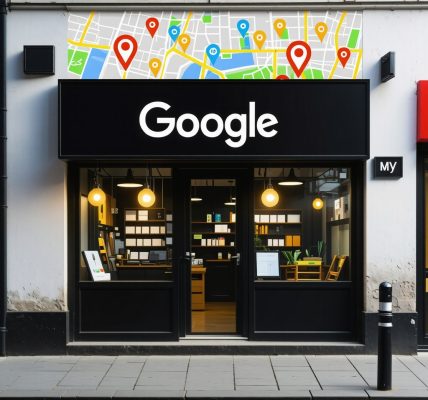Unlocking the Power of GMB Citations: Why They Matter for Local Authority
In the rapidly evolving landscape of local SEO, mastering Google My Business (GMB) citation management has emerged as a cornerstone strategy for businesses seeking to amplify their local authority and visibility. Citations—mentions of your business name, address, and phone number (NAP) across the web—serve as critical trust signals that search engines rely on to validate your business’s legitimacy and relevance.
However, managing citations effectively is far from a simple checkbox task. It requires a nuanced approach that ensures consistency, accuracy, and strategic placement across authoritative local directories and platforms. This expert guide dives deep into proven tips and sophisticated techniques that elevate your GMB profile’s authority through citation management.
Consistency is King: The Art of NAP Uniformity Across Platforms
One of the most overlooked yet vital aspects of citation management is maintaining absolute consistency in your business’s NAP details. Even minor discrepancies—such as abbreviations, punctuation differences, or outdated phone numbers—can dilute your local SEO efforts and confuse search engines, potentially harming your rankings.
Implement a centralized database or use specialized tools like Moz Local or BrightLocal to audit and synchronize your citations regularly. This proactive management not only prevents conflicting information but also reinforces your business’s credibility, a factor Google algorithmically rewards.
Strategic Citation Placement: Quality Over Quantity
While it might be tempting to flood the web with citations, expert experience shows that the quality and relevance of citation sources far outweigh sheer volume. Focus on establishing citations on high-authority, niche-specific directories and local business listing sites that resonate with your industry and geography.
For example, a local restaurant should prioritize platforms like Yelp, TripAdvisor, and local chamber of commerce directories. This targeted approach maximizes the impact of each citation, enhancing your GMB profile’s trustworthiness and local relevance.
How Can Advanced Citation Management Techniques Amplify Local Trust and Authority?
Beyond basic citation consistency, advanced techniques such as citation cleanup, leveraging data aggregators, and embedding schema markup can significantly boost your local SEO performance. Citation cleanup involves systematically identifying and correcting incorrect or duplicate citations that fragment your online presence.
Utilizing data aggregators like Neustar Localeze or Factual helps disseminate your accurate business information across hundreds of platforms simultaneously, streamlining citation management. Additionally, implementing LocalBusiness schema markup on your website supplements citations by providing structured data directly to search engines, further enhancing your authority signals.
Real-World Success Story: Citation Management Driving Local SEO Excellence
Consider the case of a boutique law firm in Chicago that struggled to rank locally despite strong services. By conducting a comprehensive GMB citation audit and cleaning up inconsistent citations across dozens of directories, they restored NAP accuracy. Coupled with strategic citation placements on legal-specific directories and implementing schema markup, their local search rankings surged within three months, driving a 40% increase in qualified local leads.
This example underscores the practical impact of expert citation management in building local authority and driving tangible business growth.
Integrate Citation Management with Holistic GMB SEO Strategies
To fully capitalize on the benefits of GMB citation management, incorporate it seamlessly with broader local SEO tactics, including GMB profile optimization, review generation, and keyword targeting. Explore comprehensive resources such as Master GMB Citation Management for Stronger Local SEO Results to deepen your understanding and refine your approach.
By combining citation accuracy with optimized content and proactive engagement, businesses can secure a dominant local presence that withstands algorithm changes and competitive pressure.
For further insights and expert assistance on elevating your GMB profile and citation management, feel free to contact our specialists who can tailor strategies to your unique business needs.
Ready to enhance your local authority through expert citation management? Share your experiences or questions in the comments below and join the conversation with fellow local SEO professionals!
For authoritative insights on the importance of NAP consistency and citation management, the Moz Local SEO Guide remains an indispensable resource for SEO experts worldwide.
Personalizing Your Citation Strategy: Beyond the Basics
When I first started diving into GMB citation management, I treated it as a task to check off rather than a strategic opportunity. Over time, I realized that tailoring citation efforts to the unique personality and needs of a business can make all the difference. For instance, a craft brewery I worked with thrived by focusing on local event directories and beer enthusiast platforms rather than generic listings. This personalized approach helped them connect authentically with their community and boosted their local SEO far beyond expectations.
It’s essential to think about where your ideal customers spend their time online and which citation sources align with your brand voice and industry. This kind of insight transforms citation management from a mere technical exercise into a powerful marketing tool.
Leveraging User-Generated Content to Strengthen Citations
One strategy that profoundly impacted my clients’ local rankings was encouraging user-generated content tied to their citations. Reviews, photos, and Q&A sections on GMB profiles and cited directories don’t just build trust—they create fresh, relevant signals that search engines love.
Take, for example, a local café that invited patrons to share photos and stories on their GMB listing and related citation sites. This interactive content not only enriched their profiles but also fostered community engagement that translated into sustained SEO gains. It’s a reminder that citations are living assets that benefit from ongoing interaction and authenticity.
How Do You Balance Citation Quantity and Quality without Overwhelming Your Resources?
This is a question that often comes up in my conversations with fellow SEO enthusiasts and business owners. The temptation to rapidly build hundreds of citations is strong, but as I’ve learned through trial and error, quality and relevance always trump volume. Prioritize citations on well-established, authoritative platforms relevant to your niche and local area.
Use tools like Moz Local or BrightLocal to identify citation opportunities that offer the best return on investment. These platforms help you audit your existing citations, discover gaps, and monitor consistency—all critical for maximizing efficiency without overextending your resources.
Integrating Citation Management with Other Local SEO Tactics
My experience has shown that citation management shines brightest when integrated with a holistic local SEO strategy. For example, combining accurate, consistent citations with optimized Google Business photos and targeted keyword strategies can exponentially increase local visibility.
I often recommend exploring expert resources such as Master Google Maps SEO to Win the Local 3-Pack Every Time, which dives deeper into optimizing your entire local presence alongside citation efforts.
This comprehensive approach creates a feedback loop where each tactic reinforces the other, making local SEO results more sustainable and impactful.
A Trusted Resource That Shaped My Approach
One resource that consistently influences my citation management strategies is the Moz Local SEO Guide. Its detailed insights on citation relevance, consistency, and cleanup have been invaluable for practical application in real-world scenarios.
Drawing from such trusted sources alongside personal experience ensures my methods remain both cutting-edge and grounded in proven SEO principles.
What Are Your Experiences with Citation Management? Let’s Talk!
Now, I’d love to hear from you. Have you encountered challenges or successes in managing your GMB citations? What strategies have worked best for your local SEO journey? Share your stories or questions in the comments below, and let’s build a community where we learn from each other’s experiences.
If you’re interested in diving deeper, check out our GMB SEO Audit guide for actionable steps to enhance your local search presence.
Deep-Dive into Citation Audits: Uncovering Hidden Inconsistencies and Opportunities
Conducting a thorough citation audit is more than just a routine check—it’s a strategic deep dive that can uncover hidden inconsistencies, duplicate listings, and outdated information undermining your local SEO efforts. Advanced audits employ specialized software like Whitespark or SEMrush’s Listing Management tool, which crawl hundreds of directories to map out your digital footprint meticulously.
But beyond automated tools, manual verification remains indispensable. Cross-referencing citations against your official business database ensures precision, while engaging with local partners and directories can reveal discrepancies that tools might miss. This dual approach uncovers subtle errors such as inconsistent suite numbers or varying business hours that can confuse search engines and potential customers alike.
How Can Implementing LocalBusiness Schema Markup Amplify Citation Effectiveness?
Implementing LocalBusiness schema markup on your website is a sophisticated technique that complements citation management by providing search engines with structured data about your business. Schema markup acts like a universal language, enabling Google and other search engines to better understand the nuances of your business details—ranging from address, phone number, operating hours, to service offerings.
Research published by Google’s Structured Data Guidelines confirms that schema enhances the appearance of your listings in search results, potentially displaying rich snippets such as star ratings, event dates, or direct contact buttons. This enriched presentation not only bolsters click-through rates but also reinforces the trustworthiness and authority signals derived from your citations.
Integrating schema markup requires precise coding or leveraging CMS plugins designed for SEO professionals, ensuring your structured data remains synchronized with your citations. This alignment creates a robust ecosystem where your online presence is consistent, verifiable, and optimized for maximum local search impact.
Harnessing Data Aggregators to Streamline Citation Distribution and Accuracy
Data aggregators like Neustar Localeze, Factual, and Infogroup serve as primary sources that distribute your business information across hundreds of platforms, directories, and GPS navigation systems. By leveraging these aggregators, you can effectively streamline the dissemination of accurate and consistent citation data, reducing manual workload and minimizing errors.
However, working with aggregators is not a set-it-and-forget-it solution. Regular monitoring and updates are crucial because inaccuracies at the aggregator level can cascade, propagating errors across multiple platforms simultaneously. Engaging aggregator services that provide real-time syncing and offer dashboards for citation health monitoring is a hallmark of expert-level citation management.
Moreover, advanced practitioners often negotiate inclusion in niche-specific aggregators that cater to their industry or locale, amplifying relevance and authority in targeted search results.
Strategic Citation Removal: When Less Is More for Local SEO Precision
Not all citations are created equal, and some can even be detrimental to your local SEO if they originate from low-quality or spammy sources. Strategic citation removal involves identifying and disavowing harmful or irrelevant listings that dilute your business authority or confuse search engines.
This delicate process requires a careful audit paired with outreach to directory owners to request removal or correction. It’s a nuanced tactic that, when executed properly, can significantly enhance your local rankings by purging noise and reinforcing the quality signals your business emits.
CTA: Elevate Your Local SEO with Expert Citation Audits and Structured Data Integration
Ready to take your GMB citation strategy to an expert level? Dive deeper into advanced citation audits and structured data implementation by consulting with our seasoned SEO specialists. Contact us today to craft a bespoke plan that ensures your citations not only exist but work synergistically to amplify your local authority and visibility.
Elevating Citation Management with AI-Powered Tools for Precision and Scalability
In the era of big data and artificial intelligence, leveraging AI-powered citation management tools can revolutionize how businesses maintain NAP consistency and monitor citation health. Platforms that integrate machine learning algorithms analyze citation patterns, detect anomalies, and predict potential inconsistencies before they impact your local SEO rankings.
These advanced systems can automate bulk updates across multiple platforms while adapting to evolving search engine algorithms, ensuring your citation profile remains robust and future-proof. For SEO professionals managing multiple clients or expansive local footprints, AI tools represent an indispensable asset for scalability without sacrificing accuracy.
Unlocking the Synergy Between Citation Management and Voice Search Optimization
With the surge in voice-activated digital assistants, optimizing your GMB citations for voice search queries has become a cutting-edge tactic. Voice search favors conversational, localized, and precise data, meaning that citation accuracy and structured data markup directly enhance your chances of being the voice assistant’s top recommendation.
Incorporate long-tail keywords and natural language phrases within your citation profiles and website content, aligning with typical voice queries. Additionally, maintain up-to-date business hours and service information, as voice queries often seek immediate, actionable answers.
What Are the Emerging Trends in Citation Management Impacting Local SEO in 2024?
Emerging trends point to an increased emphasis on hyperlocal citations, integration with social media platforms, and the expanded use of augmented reality (AR) for local discovery. Notably, platforms like Apple Maps Connect have become critical citation sources as mobile and AR navigation grow.
Furthermore, the convergence of citation data with user-generated content, such as real-time reviews and multimedia, creates dynamic local SEO signals that search engines prioritize. Staying ahead requires continuous adaptation to these trends and leveraging multi-channel citation strategies.
Authoritative Reference: Deepening Expertise with Search Engine Journal Insights
For an in-depth exploration of advanced citation tactics and their evolving role in local SEO, the Search Engine Journal’s comprehensive guide on local citations offers expert analyses, case studies, and actionable strategies curated by industry leaders.
Engage with Us: Transform Your Citation Strategy Today
Harnessing the power of advanced citation management techniques is pivotal for elevating your local SEO game. We invite you to connect with our experienced consultants to customize a citation strategy that integrates AI tools, voice search optimization, and emerging trends tailored to your business landscape.
Contact us now to unlock your GMB profile’s full potential and dominate local search results.
Frequently Asked Questions (FAQ)
What exactly are GMB citations and why do they matter for local SEO?
GMB citations are online mentions of your business’s Name, Address, and Phone number (NAP) across various platforms, including directories, social sites, and aggregators. They act as trust signals for search engines, validating your business’s existence and location, which is crucial for ranking in local search results and Google Maps.
How do I ensure my citations remain consistent across all platforms?
Maintaining NAP consistency requires a centralized reference of your official business information. Utilize citation management tools like Moz Local or BrightLocal to audit existing listings, correct discrepancies, and push updates. Regular monitoring and manual verification complement automated solutions to catch subtle inconsistencies.
Is it better to have many citations or focus on a few high-quality ones?
Quality outweighs quantity. Prioritize citations on authoritative, niche-relevant, and geographically pertinent directories rather than indiscriminately building volume. High-quality citations confer stronger local authority and reduce the risk of penalties or diluted signals.
What role does schema markup play alongside citation management?
Implementing LocalBusiness schema markup provides structured data that helps search engines better interpret your business details directly from your website. This enhances your listings’ appearance in search results with rich snippets, reinforcing trust and authority signals that complement citations.
How can data aggregators improve citation accuracy and distribution?
Data aggregators like Neustar Localeze and Factual distribute your business information to hundreds of platforms simultaneously. Leveraging them streamlines citation management but requires ongoing oversight to prevent propagation of outdated or incorrect data across multiple sites.
When should I consider removing or disavowing certain citations?
Strategic citation removal is warranted when listings originate from low-quality, spammy, or irrelevant sources that could harm your local SEO. Conduct comprehensive audits to identify harmful citations and work with directory owners or use disavow tools to eliminate them, thereby sharpening your citation profile.
How can AI-powered tools enhance citation management efforts?
AI-driven tools automate citation audits, detect inconsistencies proactively, and execute bulk updates with greater precision and scalability. They adapt to evolving search engine algorithms, making them invaluable for businesses managing multiple locations or clients, ensuring sustained citation health.
What is the connection between citation management and voice search optimization?
Voice search demands precise, conversational, and localized data. Accurate citations combined with schema markup and long-tail keyword integration increase the likelihood that voice assistants will surface your business as a top result, meeting users’ natural language queries effectively.
What emerging citation trends should local SEO professionals watch in 2024?
Key trends include hyperlocal citations, integration with social media platforms, increased importance of Apple Maps Connect, and citation data enriched with user-generated content and augmented reality (AR). Staying updated and adapting strategies accordingly is critical for maintaining competitive advantage.
How do I integrate citation management with other local SEO tactics for best results?
Citation management works best when combined with GMB profile optimization, review management, targeted keywords, and local content strategies. This synergy creates reinforcing signals that elevate your local search rankings and build sustainable authority.
Trusted External Sources
- Moz Local SEO Guide – Offers comprehensive insights on citation relevance, consistency, and cleanup, serving as a foundational resource for practical local SEO citation strategies.
- Google’s Structured Data Guidelines – Provides authoritative information on implementing LocalBusiness schema markup, enhancing structured data usage for better search appearance and ranking.
- Search Engine Journal’s Local Citations Guide – Features expert analyses, case studies, and actionable local citation strategies, reflecting current best practices and emerging trends.
- Whitespark Citation Audit Tool Documentation – Details advanced citation auditing techniques and tools essential for uncovering hidden inconsistencies and optimizing citation profiles.
- BrightLocal Blog and Resources – Shares up-to-date research and practical advice on citation management, local SEO integration, and reputation building.
Conclusion
Managing Google My Business citations with expert precision is indispensable for cultivating robust local authority and achieving superior visibility in today’s competitive local SEO environment. From ensuring meticulous NAP consistency and prioritizing high-quality, niche-specific citation sources, to leveraging advanced techniques like schema markup, data aggregators, and AI-powered tools, the multifaceted approach outlined here represents the pinnacle of citation management expertise.
Integrating these strategies with broader local SEO initiatives unlocks synergistic benefits that amplify your business’s trust signals and search presence, while proactive audits and strategic removals keep your citation ecosystem healthy and effective. Staying attuned to emerging trends such as voice search optimization and hyperlocal citations ensures your approach remains future-proof and competitive.
Empower your local SEO journey by applying these advanced citation management insights and sharing your experiences or questions with the community. Explore our additional expert resources or connect with our specialists to tailor a winning citation strategy that elevates your Google My Business profile and dominates your local market.


